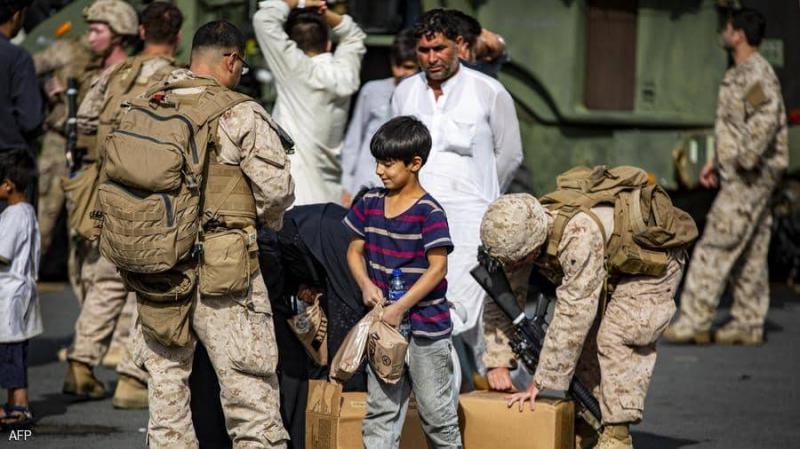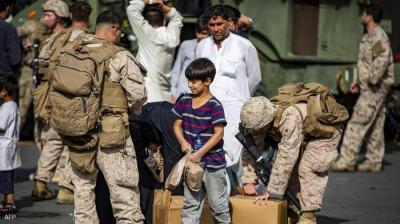The Food and Agriculture Organization of the United Nations (FAO) and the World Food Programme have warned about the dire humanitarian and living conditions in Afghanistan, confirming that famine threatens about 14 million citizens following the chaos in the country after the Taliban took control. The World Food Programme alerted to the danger of an "imminent humanitarian disaster" in Afghanistan if the United Nations program fails to raise $200 million by September, which is just days or weeks away at most.
David Beasley, the executive director of the program, stated, "Afghanistan is in turmoil after years of drought, conflict, and economic deterioration exacerbated by the spread of the coronavirus. The number of those on the brink of famine has now risen to 14 million." He added that "the people of Afghanistan are in dire need of assistance now," explaining that the number of those requiring aid from the World Food Programme could double if the international community turns its back on the Afghans.
Beasley continued, "Political calculations must be made as soon as possible, because without this amount ($200 million), food supplies designated for Afghanistan will begin to dwindle next month, putting the lives of 14 million people at risk if food aid is not prearranged before winter arrives." The FAO also warned of a worsening economic situation and food insecurity in Afghanistan in the short term, with one in three Afghans suffering from high levels of chronic food insecurity due to ongoing conflict, the coronavirus pandemic, rising food prices, and the spread of poverty and unemployment.
Observers believe that Afghanistan is on the brink of total economic collapse after many countries and international institutions announced halting aid and freezing cash reserves following the Taliban's takeover of most of the country, including the capital Kabul. Afghan journalist Ahmad Said noted that despite the severity of the data reported by the FAO and the World Food Programme, such numbers were expected.
In a conversation with Sky News Arabia, he said: "In recent years, the figures have been similar regarding poverty and famine rates, but matters will certainly worsen with the likelihood of renewed conflict in the country. For example, when the Taliban took control of most regions before entering Kabul, around 300,000 citizens had displaced toward the capital. They were sleeping in parks and public spaces without water, food, or medicine and lacking shelter. This gives a sense of how dire the situation is on the ground now."
Said continued: "According to statistics from 2020, 55% of Afghans were living below the poverty line, and about 30% of the population faced food insecurity, which equates to approximately 9.5 million Afghans. This was before the coronavirus pandemic, but afterward, with the halt of air corridors and relief aid, the situation has naturally become catastrophic."
He added: "We are facing a terrible humanitarian and living crisis in Afghanistan, with employees not receiving salaries as these will not be paid for the coming months until the situation in the country clarifies. As we know, more than 75% of the country's income and public spending relied on aid and external financing, and now there is no funding from abroad, and people can barely find what suffices for their daily needs."
Said went on: "Currently, there are food items in the markets, but they are scarce and insufficient for the citizens' needs, especially since the country has been suffering from drought and reduced agricultural production for about four years. 80% of Afghans work in agriculture and depend on it as their livelihood. Therefore, many essential and consumable food items were imported from abroad. Given the current situation, commercial movement has stalled, and planes departing from the country are military only for evacuating personnel and citizens of various countries. Sadly, in the coming weeks, goods and food supplies in markets and stores will run out, and the acute living and food crisis will explode in Afghanistan."




